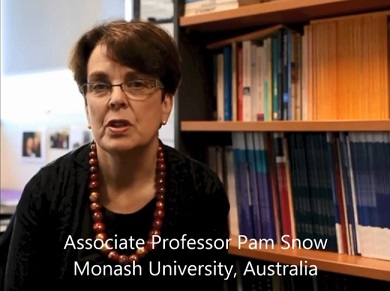Oral Language Supports Early Literacy
4 Replies
Children with good oral language tend to learn to read and spell more easily. No surprises there.
But what can teachers do to develop oral language in the early years classroom?
The 2011 Oral Language Supporting Early Literacy Study (OLSEL study) indicated that teachers can do a lot.
Teachers in the research schools in the study were given training in how to help children with vocabulary, sentence structure and stories as well as awareness of sounds in words.
One of my professional heroes is Pam Snow, a researcher at Monash University who started off as a Speech Pathologist (and supervised me as a fourth-year student), then became a Psychologist and then an academic.
Here’s a five-minute video from the RALLI campaign on YouTube, in which Pam explains the OLSEL study.
If you want to read more about the OLSEL study, or access resources used or developed during the project, (2020 update) these used to be publicly available but no longer are.



Thanks for sharing this post,
is very helpful article.
This is wonderful, Thank you
I would love to see this program but the links don’t work. Is there anywhere that we can view or contact regarding this program please?
Hi Alira, thanks for letting me know the links in this old blog post are broken, can you try this one? https://fuse.education.vic.gov.au/Resource/LandingPage?ObjectId=b8d0c32b-ded0-4917-96b5-577b700a9246&SearchScope=All
I’ll have to ask Pam what’s happening with the project, it might be finished now, but there were certainly some journal articles about it